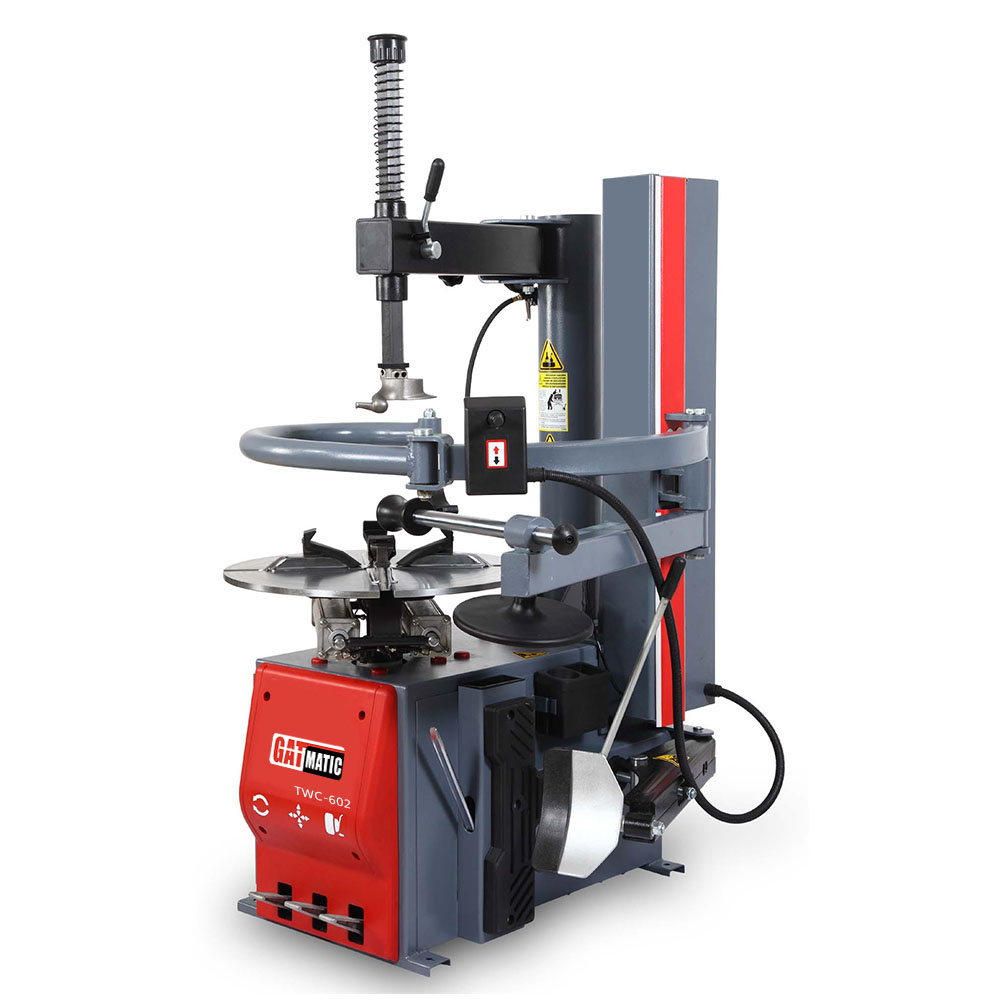Are advanced tire changers cost-effective for automotive businesses?
In the fast-paced world of automotive services, efficiency and cost-effectiveness play crucial roles in maintaining profitability and customer satisfaction. One area where these factors intersect is the use of advanced tire changers. These sophisticated machines are designed to streamline tire replacement processes, offering numerous benefits to automotive businesses willing to invest in them.
I. Introduction to Advanced Tire Changers
Advanced tire changers represent a leap forward in technology from traditional manual or semi-automatic systems. They are equipped with cutting-edge features like automated operations, precision tools, and integrated safety mechanisms. For automotive businesses, tire changers are indispensable tools that ensure timely service and operational excellence.
II. Cost-Effectiveness in Automotive Businesses
The question of cost-effectiveness revolves around the initial investment versus the long-term savings and efficiency gains. While advanced tire changers may require a higher upfront cost compared to conventional models, they deliver substantial returns over time through increased productivity and reduced labor expenses.
III. Benefits of Advanced Tire Changers
The benefits of using advanced tire changers are multifaceted. Firstly, they save considerable time during tire changes, allowing technicians to handle more jobs efficiently. This directly translates into higher productivity and revenue generation for the business. Moreover, these machines often require less manual effort, minimizing strain on technicians and reducing the risk of workplace injuries.
IV. Long-Term Cost Savings
One of the most significant advantages of advanced tire changers is their durability and reliability. Unlike traditional equipment, modern tire changers are engineered to withstand heavy usage over extended periods. This translates into lower maintenance costs and fewer replacements, contributing to long-term cost savings for automotive businesses.
V. Increased Customer Satisfaction
In the competitive automotive industry, customer satisfaction is paramount. Advanced tire changers enable quicker turnaround times, ensuring that customers spend less time waiting for service. This not only enhances customer satisfaction but also improves the reputation of the business, leading to increased customer retention and positive word-of-mouth referrals.
VI. Technological Advancements
Recent advancements in tire changer technology have revolutionized the automotive service landscape. From touch-screen interfaces to automatic bead pressing systems, these innovations streamline operations and reduce the margin for error. Automation features further optimize efficiency, allowing businesses to serve more customers with higher precision.
VII. ROI Analysis
To assess the cost-effectiveness of advanced tire changers, businesses can conduct a comprehensive ROI analysis. This involves calculating the total investment, including installation and training costs, against the anticipated savings in labor and maintenance expenses over the machine’s lifespan. In most cases, the ROI justifies the initial expenditure within a reasonable timeframe.
VIII. Challenges and Considerations
Despite their benefits, adopting advanced tire changers may pose challenges. Apart from the upfront investment, businesses need to allocate resources for technician training and adaptation to new technologies. Overcoming these hurdles is essential for maximizing the cost-effectiveness of tire changers.
IX. Case Studies and Success Stories
Numerous automotive businesses have embraced advanced tire changers and experienced significant improvements in efficiency and profitability. Case studies highlight success stories where businesses have recovered their investment costs swiftly and enjoyed sustained advantages in the market.
X. Future Trends
Looking ahead, tire changer technology is poised for further evolution. Manufacturers are focusing on enhancing automation, integrating IoT capabilities, and improving overall user experience. These advancements promise even greater cost-effectiveness and operational efficiency for automotive businesses.
Conclusion
In conclusion, advanced tire changers offer compelling advantages for automotive businesses seeking cost-effectiveness and operational excellence. While the initial investment may appear daunting, the long-term benefits in terms of efficiency, safety, and customer satisfaction far outweigh the costs. Embracing technological innovations in tire-changing equipment is not just a strategic move but a necessity for staying competitive in the dynamic automotive industry.
Get Access Now: https://www.gat-matic.com
FAQs
1. How do advanced tire changers improve efficiency?
Advanced tire changers automate several steps in the tire-changing process, reducing manual effort and time required per job.
2. Are advanced tire changers suitable for small automotive businesses?
Yes, advanced tire changers can benefit businesses of all sizes by optimizing operations and reducing long-term maintenance costs.
3. What safety features do advanced tire changers offer?
They often come equipped with safety interlocks, bead breakers with variable speed control, and ergonomic designs to minimize workplace accidents.
4. Do advanced tire changers require special training for technicians?
Yes, technicians need training to operate and maintain these machines effectively, ensuring optimal performance and safety.
5. Can advanced tire changers handle a wide range of vehicle tires?
Yes, most advanced tire changers are versatile and can handle various tire sizes and types commonly used in automotive applications.
Describe Your Needs In Detail!
We will carefully evaluate your needs and give professional solutions.



